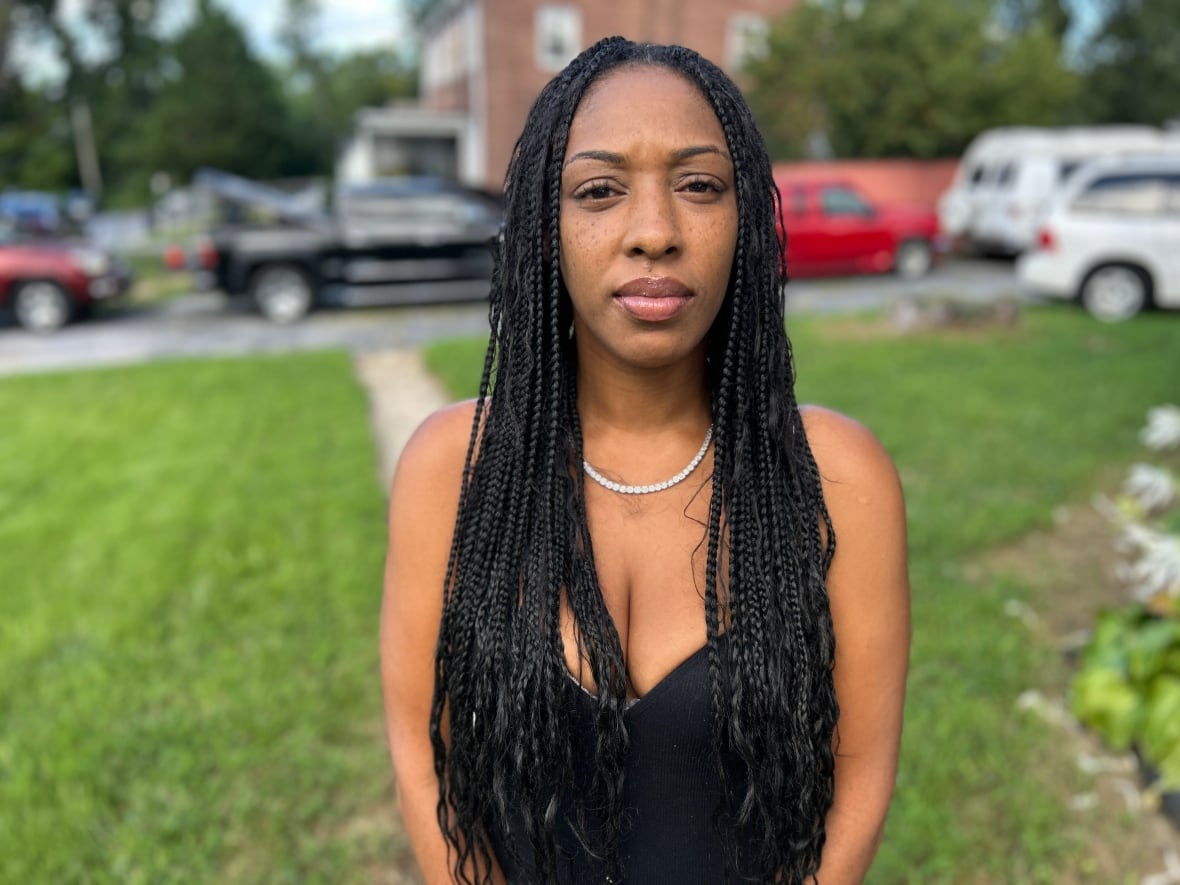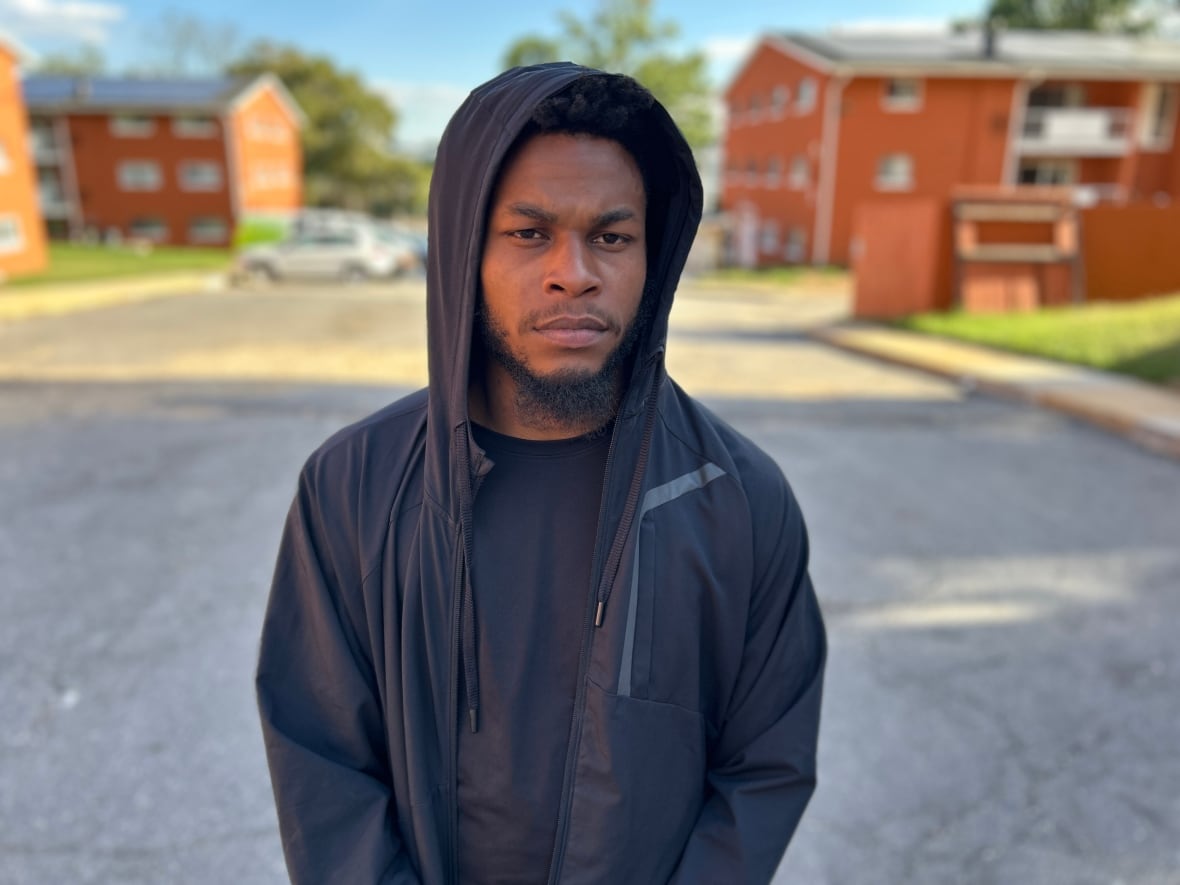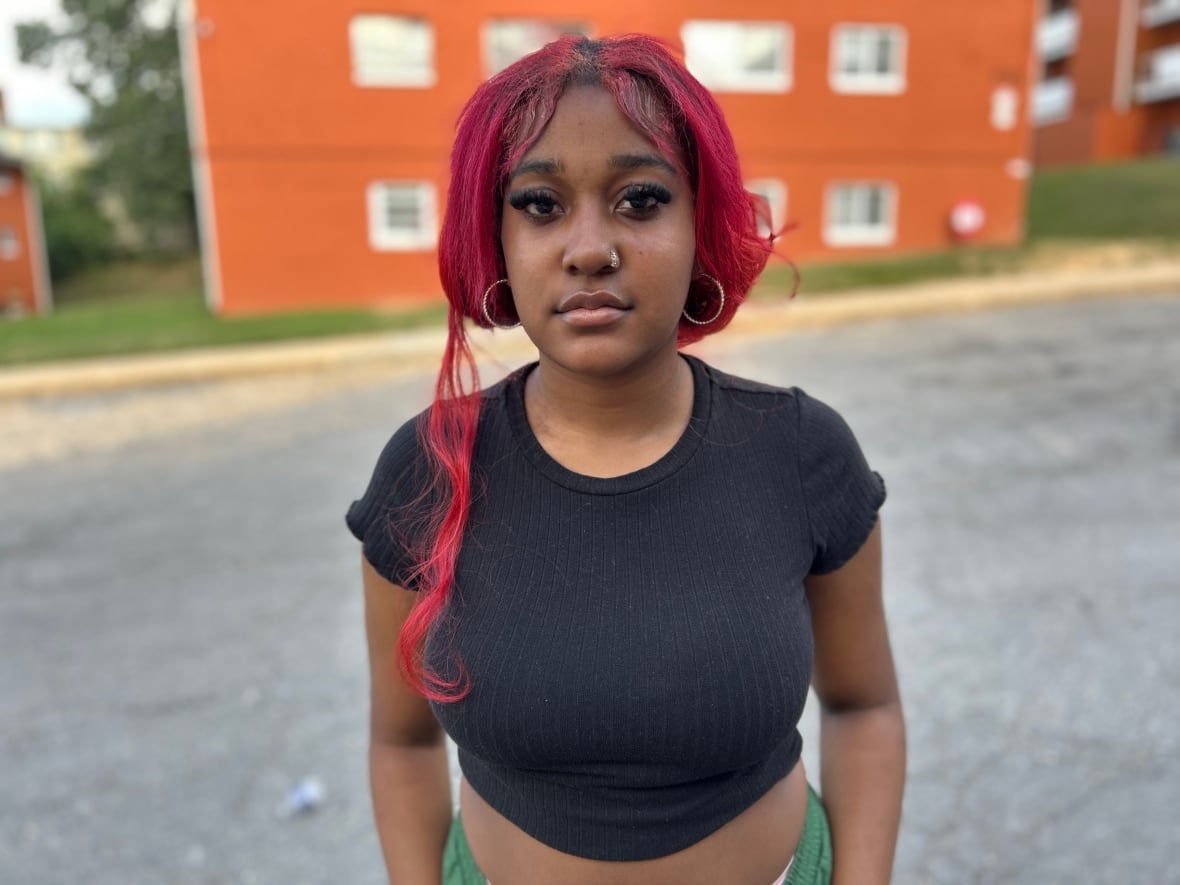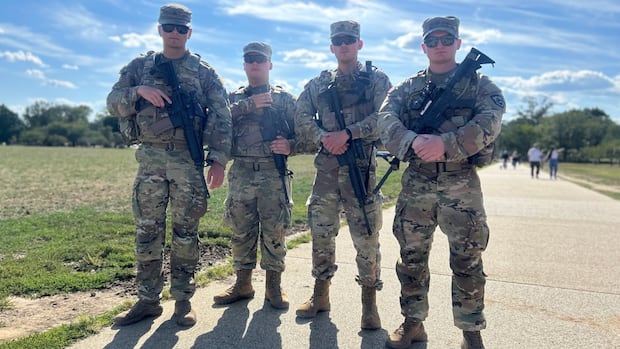When U.S. President Donald Trump sent thousands of National Guard troops to Washington in early August, they weren’t seen in the highest crime sections of the city. Residents mostly encountered them in tourist areas and subway stations.
In Southeast Washington, away from the monuments and museums, advocates like Jawanna Hardy have seen a new batch of police making unusual arrests — but it’s not the National Guard.
Hardy is the founder of Guns Down Friday, an organization that helps youth affected by crime in one of D.C.’s most dangerous areas. She said officers from out of town are now cracking down on youth smoking pot in the street, transit fare evaders and more.
“Just the other day, a young lady went to jail for fare evasion. She jumped the fence [at] the metro and didn’t pay and they arrested her,” Hardy said. “She went to jail for, I think, two days.”
Miss Hardy, as she’s known in the community, said her organization has been holding training sessions every Friday to teach youth how to act when they encounter law enforcement and notify them of changes to the way officers do their jobs.
 Jawanna Hardy is the founder of Guns Down Friday, a community group in Washington, D.C., that provides resources and support to families and youth affected by violence. (Caroline Barghout/CBC News)
Jawanna Hardy is the founder of Guns Down Friday, a community group in Washington, D.C., that provides resources and support to families and youth affected by violence. (Caroline Barghout/CBC News)
National Guard troops are not making arrests at this time, the White House said, but there has been “a surge in federal law enforcement” sent to D.C., who are making arrests including in Wards 7 & 8, in Southeast Washington.
“Nearly half of non-immigration arrests since the crime crackdown started have occurred in these two wards,” said White House spokesperson Abigail Jackson in an email to CBC News.
According to the Metropolitan Police Department’s crime data, there have been 898 incidents of violent crime so far this year in Washington, with 699 of them occurring in Wards 7 and 8.
The White House said 1,283 arrests have been made in Washington since Aug. 7, when increased law enforcement units arrived in D.C. But local community advocates question what types of arrests are behind those numbers, and whether the surge of law enforcement has done much to keep neighbourhoods safe.
Spend on community resources: residents
Experts estimate it costs about $1 million a day for 2,200 National Guard troops to be in Washington. It’s unclear how much it costs for the additional law enforcement teams that have also been deployed. Hardy said that is not a sustainable solution to crime and suggested the money could be better spent on resources for the community.
“If $1 million is being spent everyday, that’s 30 million a month,” said Hardy. “Where’s this money coming from? So that’s what scares me.”
Residents who live in the Renaissance apartments in Southeast Washington, D.C., say there has been an increased police presence in the area since Trump sent more law enforcement and National Guard troops to the city in early August. (Caroline Barghout/CBC News)
At the Renaissance apartments in Ward 8, iron gates at the entrance keep unwanted people out. Locals said they were erected after a string of drive-by shootings. Some of the windows of the buildings in the area are boarded up with plywood. The parking lot is full of potholes. The kids here play in the street because there is no recreation centre for them to go.
“There ain’t no playgrounds, there ain’t no recreation centres, it ain’t enough, you know what I’m saying, there ain’t enough mentoring going on around here for the youth,” said Bryan Turner, a 23-year-old resident of Ward 8.
Turner comes to the Renaissance apartments to check up on his cousins and make sure they’re OK. He said young people in the neighbourhood need a safe place to go to get their minds off things like bullying in school, or make TikTok videos with their friends without being bothered by officers on patrol.
“There’s a bunch of kids out here, they shouldn’t be seeing the type of weapons drawn towards them or other people in the community,” said Turner.
He said he would also like to see the city invest in fixing up the area, instead of investing in more police resources.
“The community needs a lot more,” said Turner.
 Bryan Turner, 23, lives in Ward 8, which is considered one of the highest crime areas in D.C. He says the money the federal government is spending on additional law enforcement in Washington could be better spent on resources for youth in the community. (Caroline Barghout/CBC News)Unmarked police patrols spook some residents
Bryan Turner, 23, lives in Ward 8, which is considered one of the highest crime areas in D.C. He says the money the federal government is spending on additional law enforcement in Washington could be better spent on resources for youth in the community. (Caroline Barghout/CBC News)Unmarked police patrols spook some residents
Laniyah King, 17, said there have been no drive-by shootings in Renaissance since more officers got here. But police bring their own safety issues, she said.
King said some of the officers are driving up to people in unmarked cars, and the locals aren’t sure if they are police or someone who plans to shoot at them.
“The boys don’t know whether to defend themselves or just walk away,” said King.
“A bullet doesn’t have a name on it, and it could end up in any direction. So I really don’t feel safe.”
 Laniyah King, 17, lives in the Renaissance buildings in Ward 8, an area impacted by violence. She says police are now driving around in unmarked vehicles and could be mistaken for people about to commit a drive-by shooting. (Caroline Barghout/CBC News)
Laniyah King, 17, lives in the Renaissance buildings in Ward 8, an area impacted by violence. She says police are now driving around in unmarked vehicles and could be mistaken for people about to commit a drive-by shooting. (Caroline Barghout/CBC News)

